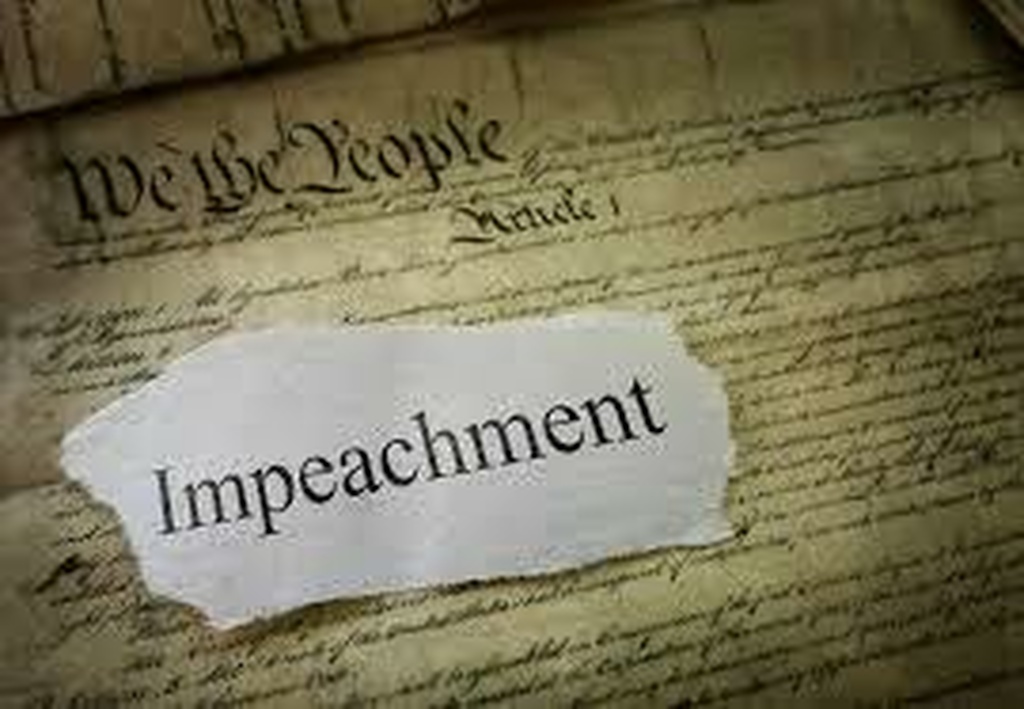
Oaths and Religion
Being under oath, the individual should be particularly reminded to tell the truth as God defines it, not as man might redefine it. The redefinition of truth makes the promise given under an oath of no consequence because such promises can also be assumed to be redefined.
- Byron Snapp,
If there were ever any doubt that politics and religion do mix, such thinking evaporates as a result of examining oaths taken by elected officials, such as the President, when they enter into their official duties. The central issue in the impeachment trial earlier this year was: Did the President lie under oath?
The word "oath" is religious, because it is a promise to God. Breaking an oath is a breaking of the Third Commandment: "You shall not take the name of the Lord your God in vain, for the Lord will not hold him guiltless who takes His name in vain" (Ex. 20:7).
In taking an oath, the individual recognizes a number of God's attributes. God is ever present. The One who has planned all events is always present in the working out of those events. He sees all things. He knows impartially and perfectly what exactly occurred. Thus, the oath taker is reminding himself that he will faithfully recount the events to God.
God is impartial. In a court of law there is one oath for young and old, rich and poor, presidents and the unemployed. The oath reminds us that we are all equal under God's law in terms of telling the truth.
God is truth. He is the standard of truth. Thus we call on Him to measure the words we say by His standard, not ours. For example, on the first day of creation, God defined His creation as good (Gen. 1:4). It was good because God declared it as such.
In Acts 5 Ananias and Sapphira sold some property. They brought a portion of the proceeds to the apostles for use in the ministry of the church. That portion appeared to be the total price of the land. At least that was the truth that the two conspirators conveyed. Whereas, others who had sold land, brought the total sale price and laid the money at the apostles' feet (Ac. 4:37), Ananias and Sapphira kept back a portion of the money for their use while pretending to give all to the church. In essence they sought to redefine, on their terms, the sale price. Their action cost them their lives (Ac. 5:5, 10). As far as I know they had taken no oath to give all their land sale proceeds to the church. An oath adds greater gravity to the situation.
Being under oath, the individual should be particularly reminded to tell the truth as God defines it, not as man might redefine it. The redefinition of truth makes the promise given under an oath of no consequence because such promises can also be assumed to be redefined. To tell the truth and only the truth causes us to focus on the words we will say from God's perspective of those words. The oath taker will be held accountable accordingly.
Years ago Robert L. Dabney, a Southern Presbyterian theologian, penned these words: "Wherein an oath is falsely taken it is a heaven-daring attempt to enlist the Almighty in the sanction of the creature's lie; and is thus, either the most outrageous levity, or the most outrageous impiety, of which he can be guilty" (Lectures in the Systematic Theology, p. 364).
The discussions of oaths in Washington, D.C. during the recent impeachment process should be a sobering one for the American people. It is a reminder that religion and politics do mix. Sadly, there is much evidence that the current discussion has been in the context of humanistic religion, not Biblical. If words given under oath can be acceptable only by the definition given by the oath taker, then truth is relative. Eternal truth is non-existent.
God, no doubt, will be similarly defined. God, to Whom the oath is made, will not hold man accountable if man is declared innocent, no matter that truth is not honored. Under this scenario, stonewalling and not being convicted is more important than the actual truth.
During the impeachment trials, the Senate had the responsibility to judge in regard to the truth presented as evidence was evaluated. Judgment was to be rendered neither in terms of political parties nor polling percentages. The use of these as standards reveals a humanistic religion, not a godly one. In depending on polls or politics as truth, and denying existing evidence, an individual declares truth to be relative and as changeable as the most recent poll. In such cases evidence and faithful witnesses — real truth — do not matter.
In the current events I believe God has provided a real opportunity for our society to see how it defines truth. The answer given has great consequences on which religion undergirds not only politics but the judicial system for years to come.
- Byron Snapp
Byron Snapp is a graduate of King College (B.A.) and Reformed Theological Seminary (M.Div.). He was Associate Pastor at Calvary Reformed Presbyterian Church, Hampton, Virginia, from 1994 until his retirement in December 2014. He is a native of Marion, Virginia. He has had pastorates in Leakesville, Mississippi, and Gaffney, South Carolina. He served as Assistant Pastor in Cedar Bluff, Virginia prior to his ministry at Calvary Reformed. He has served as editor of the Presbyterian Witness and was a contributor to A Comprehensive Faith and Election Day Sermons. He is currently a member of Westminster Presbytery in the PCA. He and his wife Janey have 3 children and several grandchildren.